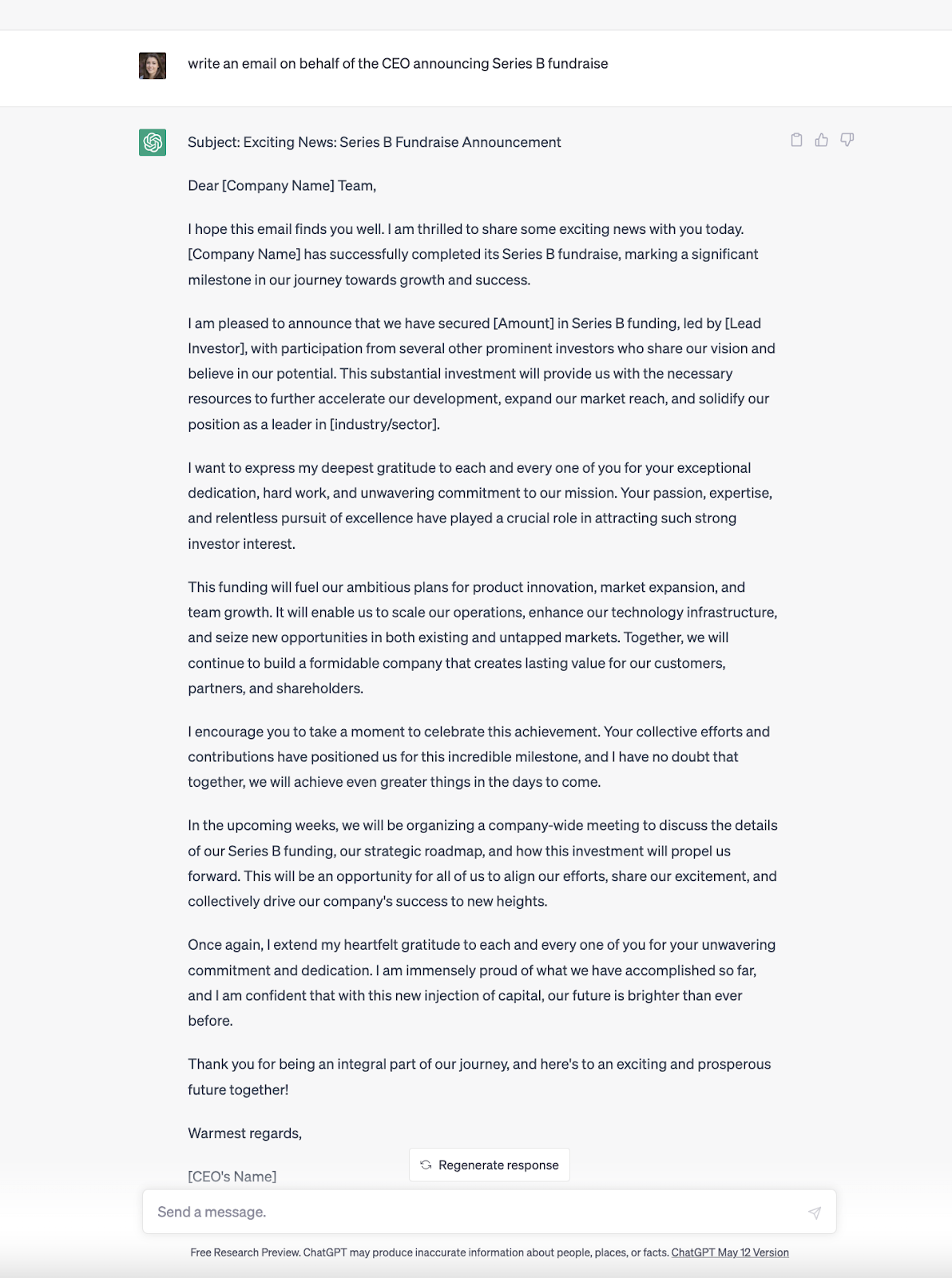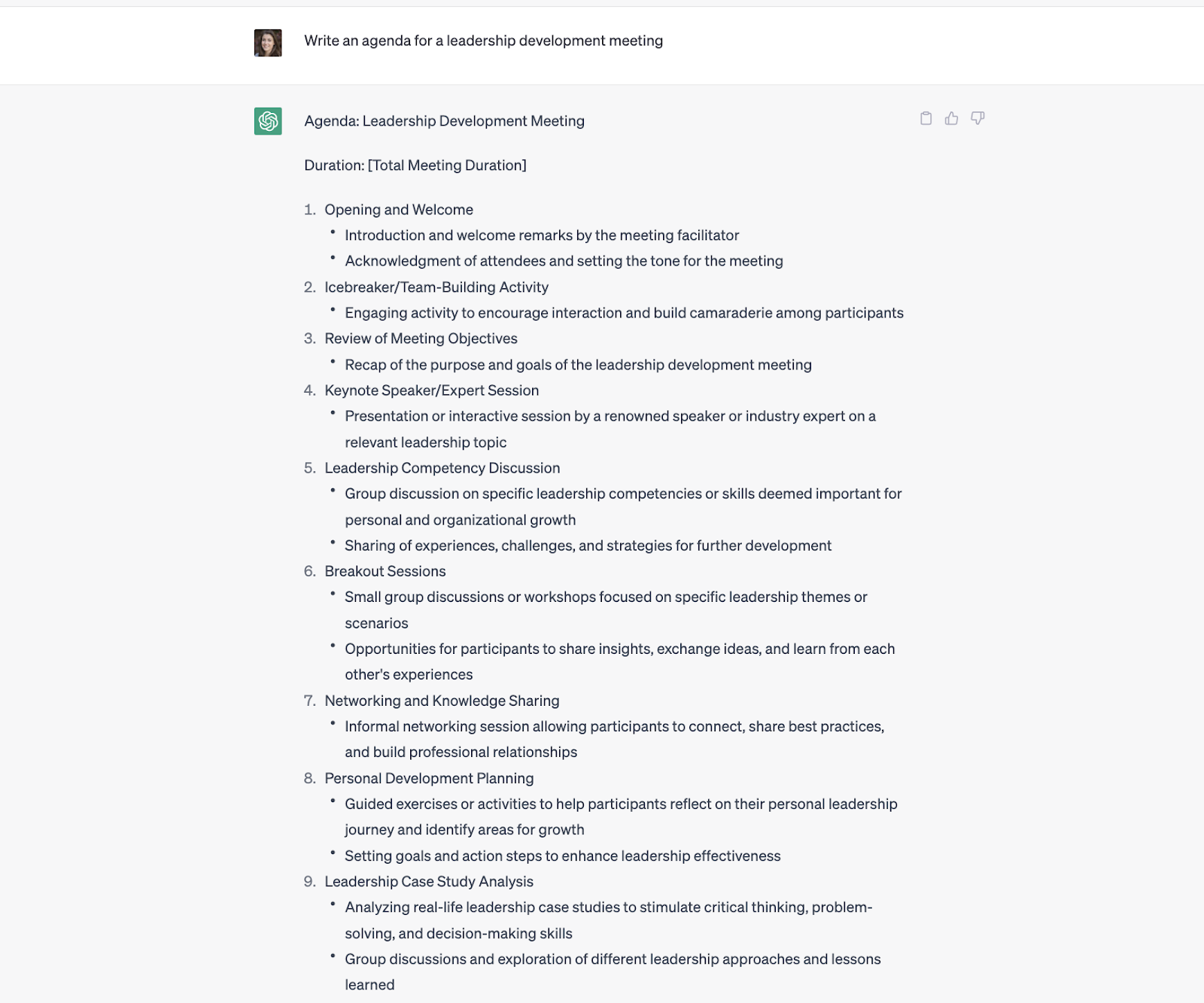In recent years, the role of the Executive Assistant has undergone a significant transformation. What was once a role primarily focused on administrative tasks has now evolved into a strategic partnership, with EAs acting as trusted extensions of their executives. EAs are now commonly taking on higher-level responsibilities like communications on behalf of the executive office, inbox management, and project management.
The use of AI tools has the potential to further elevate the EA role. For example, many of the EAs in our network express the desire for growth in their position but have limited bandwidth for more strategic work due to time-intensive administrative responsibilities. This is where AI can be a transformative tool for an EA! By leveraging AI tools, EAs can reclaim valuable time and focus more on strategic work.
Consider it like this. AI is to an EA what an EA is to their Executive: a force multiplier. Just as EAs free up their executives' time to focus on strategic initiatives, AI serves as a powerful tool that can grant EAs the same advantage.
In the upcoming series, we will explore various AI tools that can assist you in your daily role as an EA. Let's start with one of the most significant disruptors in the tech industry: ChatGPT.
If you haven't yet explored ChatGPT, we strongly encourage you to do so. Don't be intimidated; the platform is simple to use. We’ll walk you through how to get started.
Visit chat.openai.com and sign up for free using your email address.
This is the home screen. At the bottom of the page, you can see where to enter a command.
Here are some real world examples of how an Executive Assistant can utilize the tool.
Remember to avoid sharing any confidential information when using ChatGPT or any AI tool to protect both you and your company’s privacy. This includes financial account details, passwords, medical records, Social Security Numbers (SSN), and any Personally Identifiable Information (full name, address, email etc.). These tools will often use prompts as training data which means sometimes your data can mistakenly be integrated into responses. OpenAI knows this is a problem and is working to address this issue, but for now it is best to avoid entering sensitive data.
It is natural for you to feel apprehensive about the rise of Artificial Intelligence (AI) in the professional environment. However, we think it will be beneficial to you to see AI not as a threat but as an advantageous tool that can streamline your duties. Learning to leverage these tools, you can free up time to focus on the uniquely human aspects of your role. Furthermore, embracing AI signals your adaptability and forward-thinking attitude in a rapidly evolving, tech-driven world, setting you ahead in your career.
In the coming months, we will dive deeper on how to get more out of ChatGPT and other AI tools.






